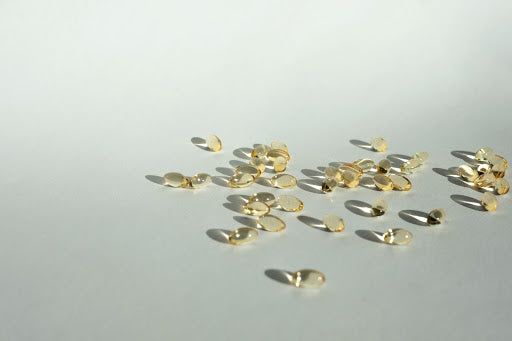Echinacea: What Is It And What Are The Benefits?
* Verified by a US-based board-certified doctor.
If you’re looking for a natural way to improve your health, herbs are a great option. There are around 75 to 100 types of herbs and flowers, and people use herbs for all sorts of ailments.
For example, some people use peppermint to relieve nausea and IBS symptoms. Others use sage for boosting brain function and memory.
If you’re looking to add more herbs to your diet, you should check out Echinacea. Echinacea is a flower that belongs to the daisy family. How is Echinacea beneficial for your health? Let’s dive in.
Yerba Mate: What is It and What Are the Benefits?
What is Echinacea?

Echinacea is a very popular herb in America. It’s long been used by Native Americans as a medicinal plant.
The name Echinacea originates from echinos, a Greek word that means hedgehog. The plant got its name due to its pricky scales. Archeologists have evidence that Native Americans have been using the plant for over 400 years to fight infection and treat wounds.
Throughout history, people have used the herb as a general “cure-all” plant. For example, others have used it to treat scarlet fever, malaria, syphilis, and blood poisoning.
The herb probably reached the height of its popularity during the 18th and 19th centuries. Since then, the use of the herb has declined. However, with more people developing an interest in alternative medicines, the herb is starting to make a comeback.
Echinacea plants contain a variety of active compounds, including alkamides, caffeic acid, rosmarinic acid, phenolic acid, and more. You can use both the root and upper part of the plant to make tinctures, tablets, teas, and extracts.
The Benefits of Echinacea
Like other herbs, Echinacea offers many different benefits. Here are some reasons you should use Echinacea:
Beneficial for the Immune System
Echinacea is perhaps best known for its immune-boosting properties. Numerous studies have shown that the plant can boost your immune system and ward off viruses and infections.
The herb can also help you recover faster from an illness. A recent review of 14 studies found that Echinacea can lower the risk of colds by more than 50%. It can also shorten the duration of a cold by 1.5 days.
However, more studies are needed to figure out how beneficial Echinacea is for colds and why it’s beneficial.
Contains Powerful Antioxidants
One undeniable benefit of Echinacea is its composition of antioxidants. Antioxidants are molecules that defend your body against oxidative stress. Oxidative stress can lead to diabetes, heart disease, and other chronic illnesses.
Some of the most powerful antioxidants found in Echinacea are flavanoids, rosmarinic acid, and citric acid.
Flavanoids are beneficial because they regulate cell activity and help fight off free radicals. Rosemarinic acid is beneficial because it helps with your body’s inflammatory responses.
Finally, citric acid is beneficial because it kills bacteria.
Echinacea also contains compounds known as alkaloids. These compounds enhance the antioxidant activities in your body. They also help renew worn-out antioxidants, and they help antioxidants reach molecules that are prone to oxidative stress.
Are you wondering why you have trouble focusing? Here’s why!
Lower Blood Sugar Levels
If you suffer from diabetes or pre-diabetes, you may want to look into Echinacea.
That’s because the herb may be able to help lower your blood sugar levels. A recent test-tube study looked at how Echinacea may help lower blood sugar levels. Scientists found Echinacea helps suppress enzymes that digest carbs, which in turn can lower your blood sugar levels.
The herb can also make your cells more sensitive to insulin, which can, in turn, lower your blood sugar levels.
Anti-Inflammatory Properties

Because Echinacea contains powerful antioxidants, it should come as no surprise that the herb has strong anti-inflammatory properties.
While inflammation helps promote healing in the body, too much inflammation can be a bad thing. If inflammation gets out of hand, it can lead to chronic diseases and other health issues.
It can also help reduce inflammation in those who suffer from ostheoarthritis.
Help Treat Skin Conditions

Another major benefit of Echinacea is that it can help treat skin conditions. Due to its anti-bacterial and anti-inflammatory properties, Echinacea can help treat acne.
A recent study of 10 healthy participants found that Echinacea helped improve hydration and reduce wrinkles. Echinacea can also help treat eczema.
However, because Echinacea has a short shelf life, it can be difficult to incorporate into skin care products.
May Offer Protection Against Cancer
Echinacea may also help protect your body against certain types of cancer. A recent test tube study found that Echinacea helped slow the growth of cancer cells.
Another study found that the herb may also help trigger cancer cell death. Scientists believe the herb does this through its immune-boosting properties.
Related: How to Memorize Material Faster
Potential Side Effects of Echinacea
So, do you need to worry about anything when taking Echinacea? For the most part, Echinacea is entirely safe.
However, people have experienced negative side effects. Some of these side effects include:
- Rashes
- Hives
- Swelling
- Itchy skin
- Nausea
- Stomach pain
- Shortness of breath
However, these side effects are much more common in people who already have an allergy to flowers.
Related: How Meditation Improves Productivity
Dosage Recommendations
The FDA doesn’t provide any official dosage recommendations for Echinacea. Generally speaking though, those who take it in the dry powdered form should aim for around 300 to 500 mg, three times per day.
If you consume Echinacea as a liquid extract, you can drink up to 2.5 ml per day.
Echinacea: Conclusion
Due to the many benefits Echinacea offers, it can be a great herb to add to your daily routine. You just need to make sure you purchase the Echinacea from a trustworthy source.
If you’re looking for a drink that contains Echinacea, check out Magic Mind!
Do you want to do more with Supports stress management?








